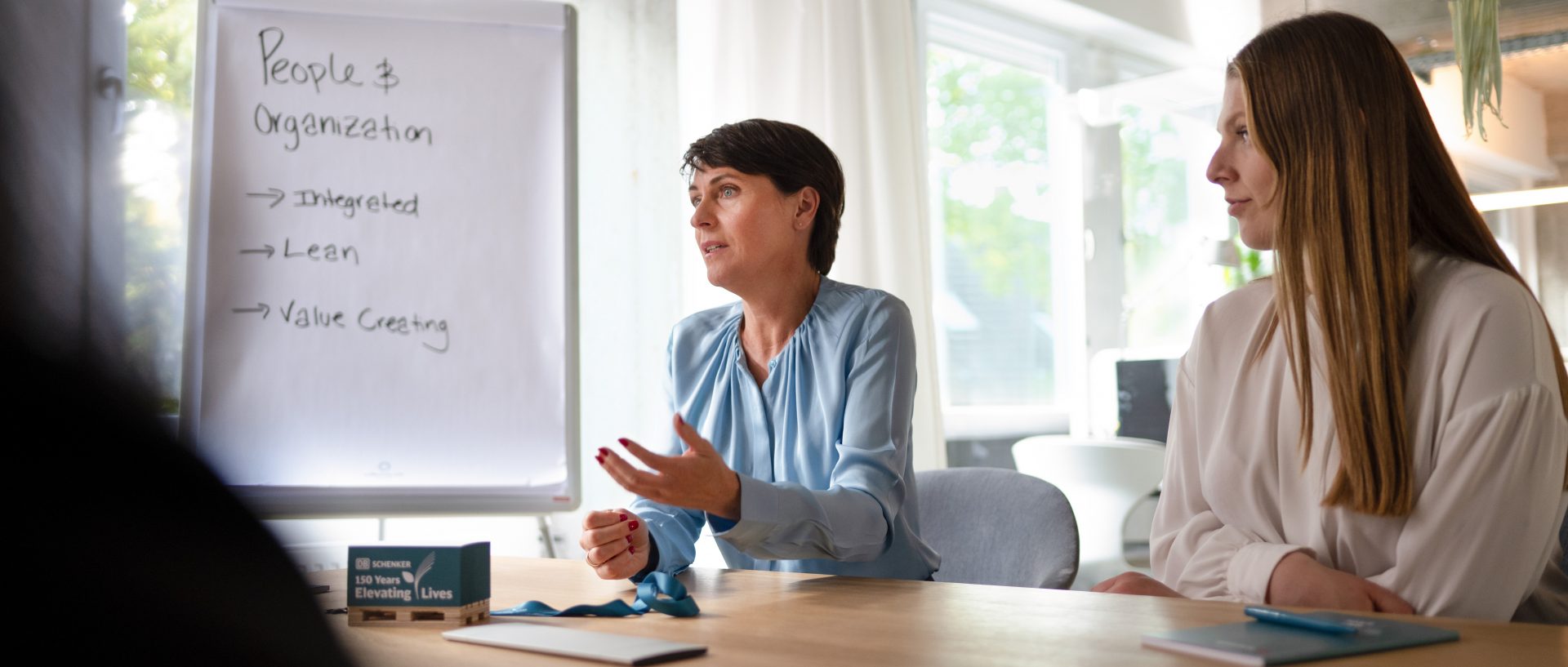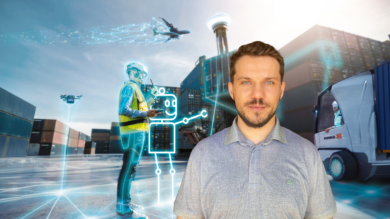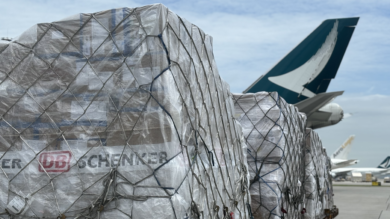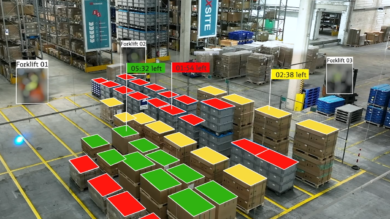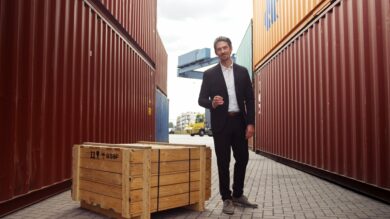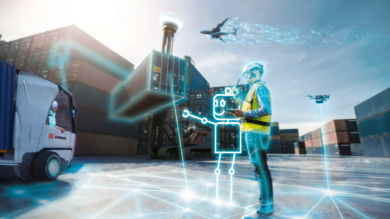Over the last few years, the working environment in the logistics industry has changed fundamentally – and so have the needs of the people working in it. The Great Resignation hit the logistics sector hard and made the search for talent more difficult than ever before. Attracting and retaining quality employees is imperative if a logistics service provider (or any company for that matter) wants to be successful. But how can an HR organization ensure this? Or even empower a logistics service provider and its employees to take their performance to new heights? And what is needed to adapt to the new normal?
To answer these questions Logistics Matters had the chance to speak to Katharina Rath, Member of the Board of Management for People & Organization at DB Schenker. With more than 15 years of experience, she is a true expert in the People space, having worked in similar roles for other big companies like Continental and Siemens, where she successfully led HR in global roles both in R&D, Manufacturing and Central Functions.
Logistics Matters: “The last years have changed the way we work dramatically. How do you think the new ways of working will look? How have you reacted at DB Schenker?”
Katharina Rath: “It is true that the last few years have fundamentally changed both our industry and our work lives. But there’s a principle I follow that counts now more than ever before: if you look after your employees, they look after your customer. It’s something Richard Branson once said, and it has stuck with me since I read it.
Every single one of our employees at DB Schenker drives our success. That’s why we put our people at the heart of everything we do. I really do not like the term “Human Resources”. Who after all wants to be seen as a resource? We care for our employees. They’re individuals with needs and wishes and we provide them with opportunities to excel to the best of their ability. It’s how we retain and attract the brightest talent in the industry. Take for example our approach to new ways of working. I believe that these are vital to keep us future fit as an organization, but you can’t just give employees laptops and send them to work from home. As People & Organization, we need to ensure our employees have both the technology as well as the systems and processes in place to succeed.
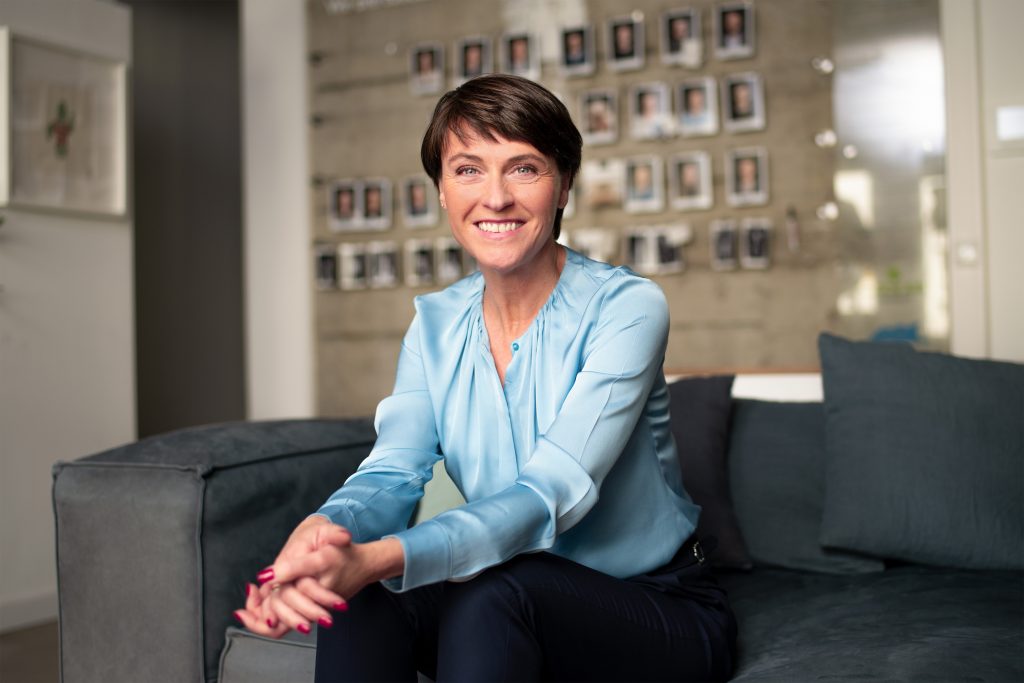
An example of our approach to new ways of working can be seen in pilot projects in our Essen and Singapore locations. People are given more flexibility around where they choose to work. We’re focusing on outcomes, not where the activity takes place. The office is still an important place to connect and collaborate, but more and more we see that this is just one of the spaces that’s conducive to work.
In other areas, we’ve also undertaken projects like remodeling our offices for activity-based working and collaboration, implementing additional technology like digital whiteboards and next-generation video systems to increase the efficiency of hybrid meetings. Vitally, we’re providing guidance in the form of training, templates and exchange platforms to support teams and leaders around best practices when it comes to new ways of working too. And we’re not only focused on desk-based roles in this whole process. We’re identifying areas for workplace attractiveness and enhanced health and safety measures across our organization. The outcomes here include everything from new site concepts and air filters to exoskeletons and remote equipment operation. And we will enhance these offers as I am absolutely convinced, there is far more flexibility possible than we have installed right now.
I think what we need to bear in mind is that new ways of work aren’t just about how we work, but also why. Over the last few years, many people reassessed their priorities. They found that they were disconnected from their work, or they wanted to do something more meaningful in life. I believe that, as P&O (People & Organization), we can put systems in place to ensure a continuous dialog to help align people’s work lives with their aspirations. And I also believe that helping your employees to learn and grow is the most important task for leaders. This cannot be delegated to a system and I encourage all leaders to take enough time to sit with their employees, provide well-prepared feedback and coach them along the way. This ensures that we are aligned with our people, and we know what they want from their careers.
This is all only the beginning. Like many other companies, we have started this journey and I am convinced that we have the opportunity now to build a better path to the working world of tomorrow, and I am excited by the possibilities ahead.”

Logistics Matters: “How can a HR organization empower the whole company to enhance performance?”
Katharina Rath: “First of all I would like to talk about the term Human Resources as such, because I truly believe we need a mind shift here. It is a description that has been used for decades, but I am convinced that we need to move beyond seeing people as just numbers or as a resource. They have their own skills, viewpoints, and abilities. People are what matter most in business and unleashing their potential, is the main foundation of our success. Therefore, we at DB Schenker have renamed our HR organization into “People & Organization” to encompasses this paradigm change. For me it is important to support our employees in the best way and also to hire, develop, and retain individuals who deliver the best services to our customers – I’m passionate about good leadership, learning and growing people!
Our vision as “People and Organization” at DB Schenker is clear: We elevate our business by being a trusted partner through shaping a culture of excellence. Collectively we lead the change towards an agile and people centric organization for sustainable success. Ultimately, everything we do in P&O keeps our end customer in mind. We serve business partners directly, but in supporting them, we impact the customers they work with every day. So, by transforming this internal function we not only ensure the organization is future-fit, but we also strengthen the customer and experience right now by creating much more value.
As the rollout of the P&O transformation has been underway over the past weeks, we have had a lot of positive reactions already. Our teams are collaborating with speed and quality, evolving processes, and solutions according to business demands. I am really proud and excited that the first results of our transformation are already becoming visible.”

Logistics Matters: “Since you are currently in such a huge transformation, what would you wish to say, if you look back in 5 years?”
Katharina Rath: “This mind shift is a huge change – not only for DB Schenker, but for the whole logistics industry – and change takes time. I firmly believe if you want to change, you just need to start with yourself. I have managed transformations in my former roles: you need to be courageous, pave the way and start with the willing ones. Like we’re seeing now at DB Schenker, many were skeptical at the beginning. But in the end, everyone was impressed, and more than a few told me afterwards that they never expected the results to be so fundamental.
So, if you ask me what I wish to say in 5 years, it would be that I had the same reactions from this transformation. To get that kind of feedback from our people, and even the biggest critics, is proof of a successful outcome, and all the reward I need. I truly believe that this mind shift will define our business for years to come. It will allow us to achieve the sustainable success we are aiming for, securing our position as industry leaders well into the future.”
Published: June 2022


